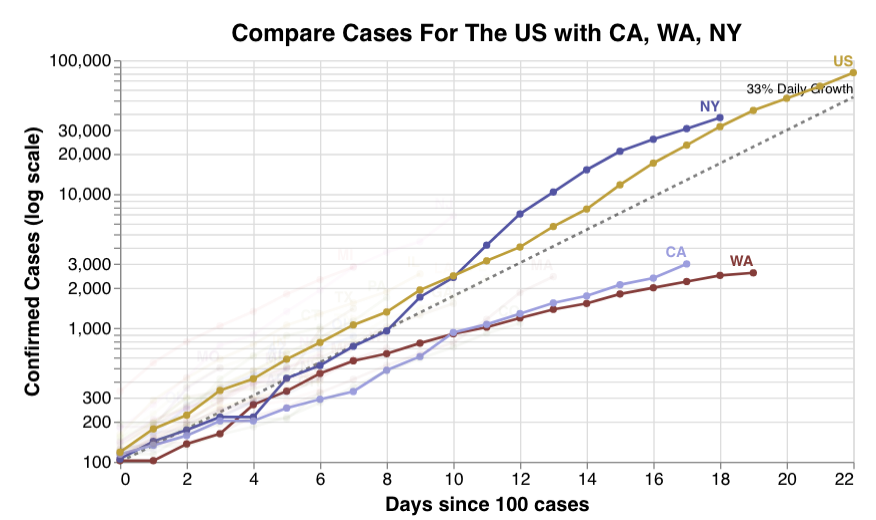The Crosstown Trail
April 7, 2020 
Back in November, when we could still go outside and interact with other people, a new trail opened in San Francisco: The Crosstown Trail, a 17 mile hike in the middle of the city hitting a bunch of neighborhoods and local businesses, climbing to many lookout points, and cutting through multiple parks, large and small. It wasn’t hard to convince our friends to hike it. More...
Cortázar, Rayuela, and Hayekian Knowledge Problems
March 26, 2020 
In Rayuela (English: Hopscotch), Julio Cortázar plays with structure and subjectivity in ways that no other writer I know of does. The novel, which the author insists in calling a _counter-novel,_forces the reader to be an active participant, not just by picking the order in which to tackle the book’s chapters, but also by deciding whether or not to skip those labeled “expendable.” Continue reading...
Coronavirus Growth in The US
March 25, 2020 
A couple of weeks ago, after seeing the first version of John Burn-Murdoch and co.’s Coronavirus data visualizations on the Financial Times, I decided that someone had to run the equivalent analysis aggregating at the state level for the US. Some searching led me to The COVID Tracking Project, a project by two journalists at The Atlantic, Robinson Meyer and Alexis Madrigal, which broke out the data exactly as I’d needed, and offered an easy to use API. After noodling around in a Jupyter notebook for a bit, I came up with this Continue reading...
The Other Curve to Flatten
March 25, 2020 
Over the last couple of weeks, as the western world woke up to the COVID19 threat, infographics and quickly put-together charts flooded social networks. Credentialed epidemiologists and Twitter randos alike shared images showing the effects of the virus, many of them urging us to “flatten the curve.” By now, you must have seen John Burn-Murdoch’s visualization of the curves we’re being asked to flatten, or perhaps, since you’re here, my take on those same curves by state in the US. Flattening the curve is not just a meme, but a necessity. Continue reading...



